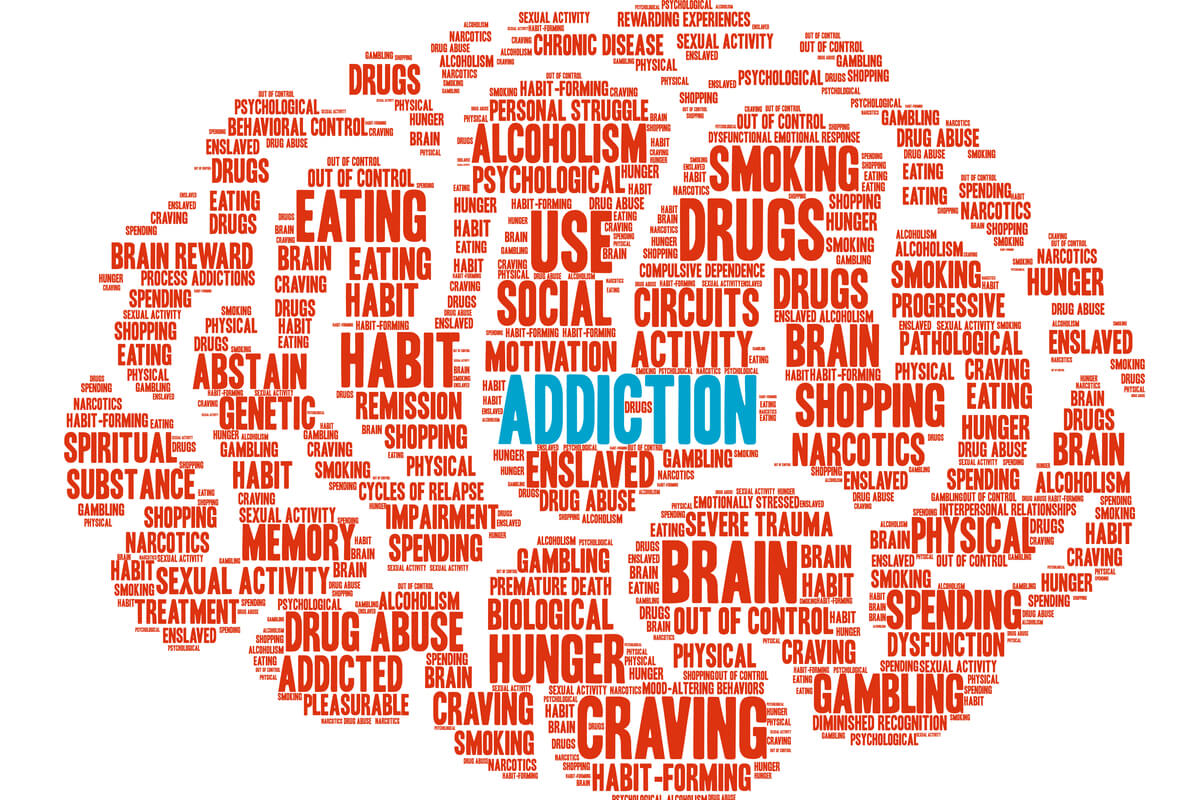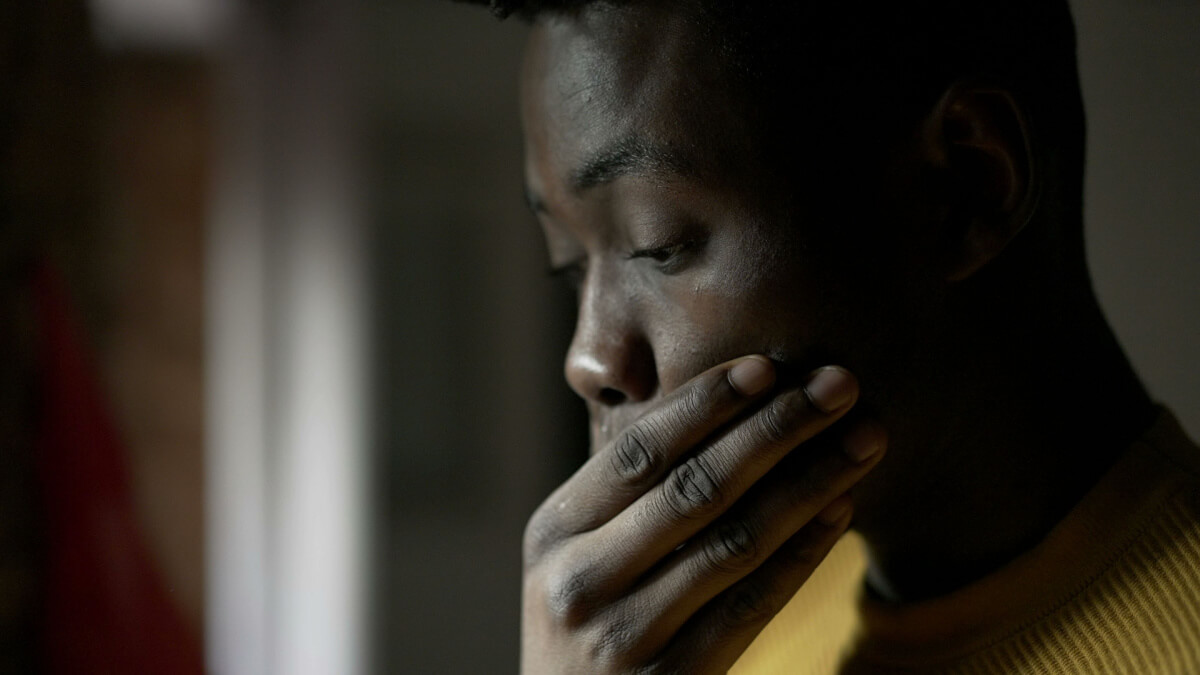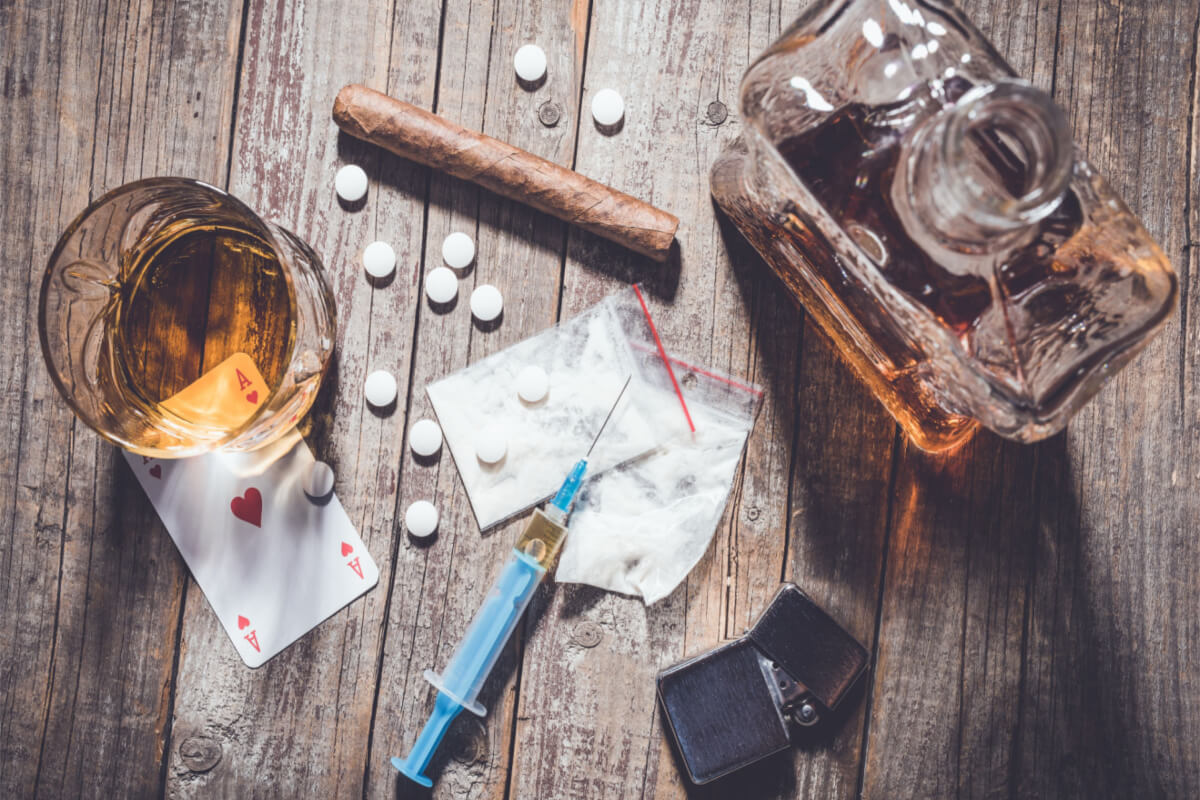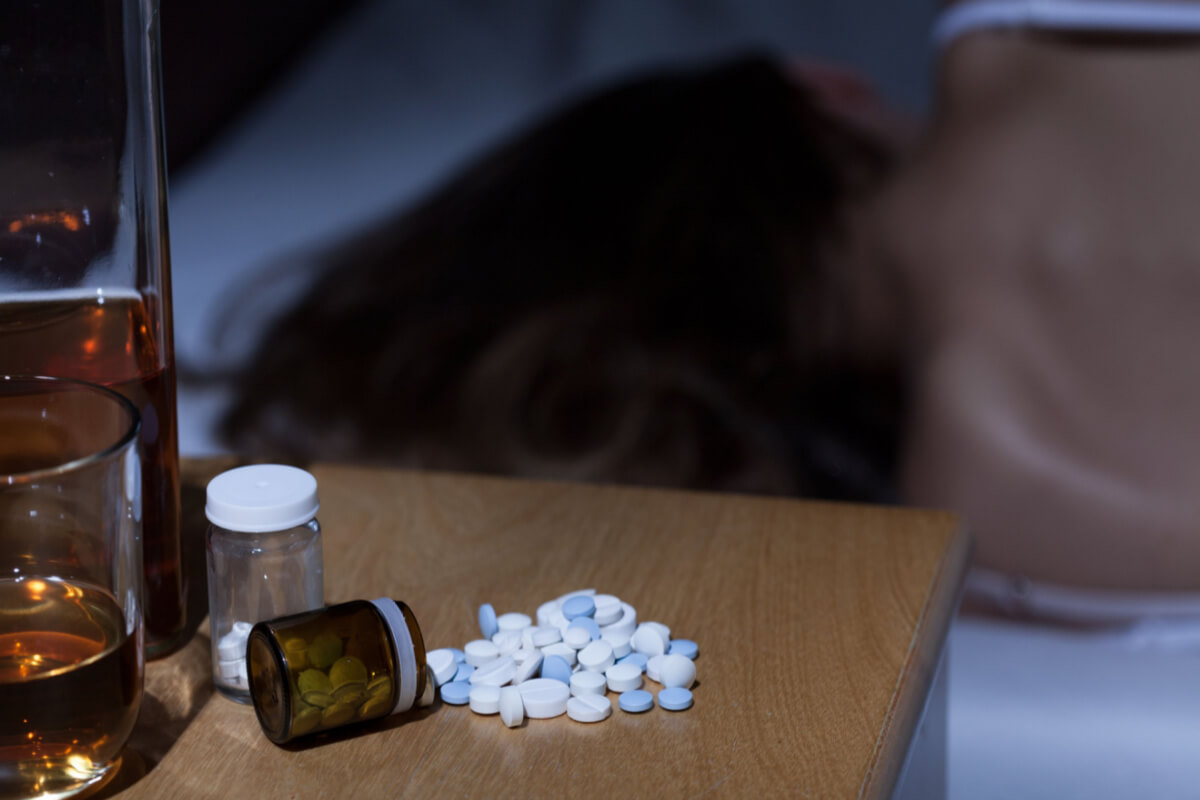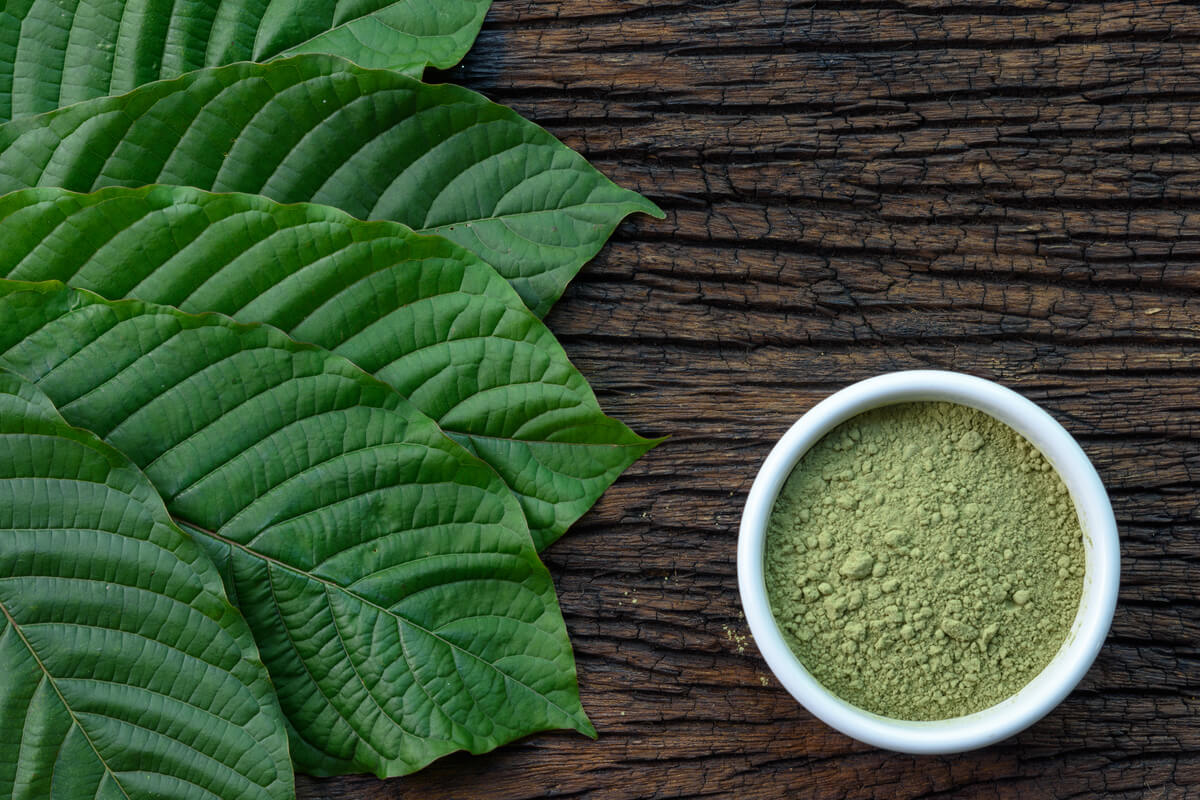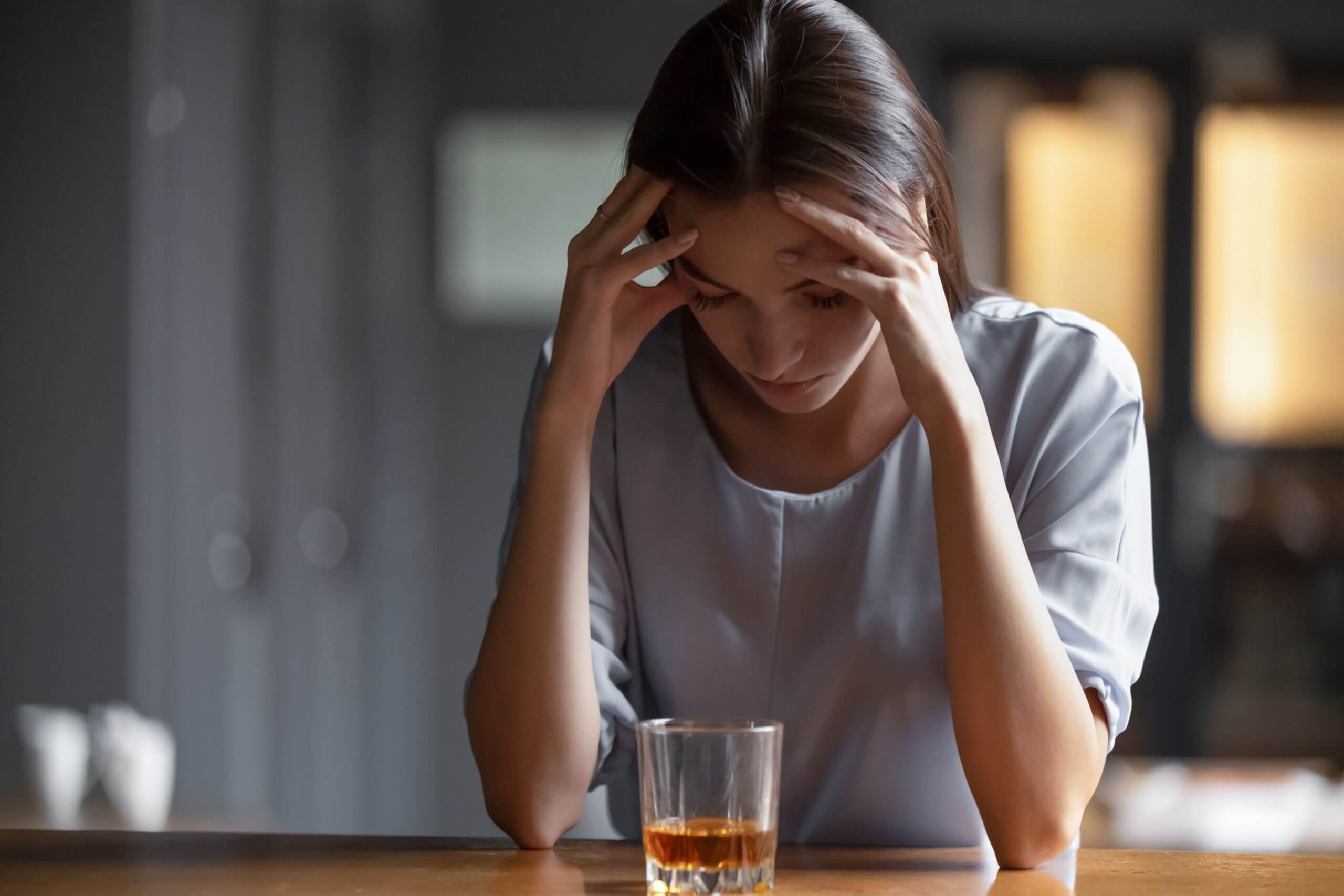
You spent last night drinking, and you woke up feeling sick. Chances are, you’re dealing with a hangover.
For most people, hangovers are unpleasant reminders of the dangers of alcohol. Researchers say adults who drink regularly on average wake up with hangovers about once per month.[2] If you’ve overindulged in alcohol, you’ve likely had a morning-after episode at least once. Up to 23% of people don’t get hangovers. These people may be at higher risk of alcohol use disorder (AUD).[1]
Experiencing severe hangovers that impact your ability to function or to complete your responsibilities may be a sign of an alcohol use disorder. This article will review what you need to know about “hangovers” and how to know if they might be a problem for you.
What Is a Hangover?
Hangovers are a constellation of symptoms experienced after your body has metabolized alcohol.
13 Common Hangover Symptoms
Everybody and every hangover is a little different.[3] however in general, symptoms of a hangover include:
- Aching muscles
- Anxiety
- Dizziness
- Fatigue
- Gut pain
- Headache
- Intense thirst
- Irritability
- Nausea and vomiting
- Sensitivity to light and sound
- Sweating
- Weak muscles
Common Hangover Causes
Researchers know overindulging in alcohol causes hangovers. Men who drink five to seven cocktails and women who drink three to five cocktails in four to six hours are likely to wake up sick in the morning.[4]
Hangover symptoms are caused by the following:[3]
- Alcohol digestion: Your stomach releases more acids to process your drinks. And your liver creates toxic byproducts while metabolizing alcohol. When exposed to this toxin, your liver, pancreas, and other organs swell. You feel nauseous and sluggish due to this process.
- Dehydration: Kidney functions change due to alcohol exposure. You urinate more, and your tissues dry out. Your headache and fatigue are due to this water loss.
- Insomnia: Alcohol alters sleep patterns. You fell asleep fast, but you woke up in the middle of the night feeling wired. Your fractured sleep doesn’t allow your body to heal.
- Withdrawal: Brain cells sleeping while you’re intoxicated awaken when you’re sober. Feelings of anxiety suppressed by alcoholism rebound when you awaken.
Genes also influence hangover severity. Researchers say your genetic makeup is responsible for almost half of your hangover frequency if you’re a male and 40% if you’re a female.[5]
Hangover Timeline
How long will you feel sick? Think back to your night of drinking. In general, the risk of hangover is what is called “dose dependent”: the more alcohol consumed, the more severe the symptoms and longer the duration of the hangover.
In general, a hangover begins once you stop drinking:
- 6–8 hours later: Your blood alcohol drops, and symptoms start.
- 12 hours later: Your symptoms peak.
- 24 hours later: You’re returned to normal.
Keep in mind that your timeline may move faster or slower. But in general, you should feel much better about a day after you stopped drinking.
Are Hangovers Dangerous?
Most people move through hangover symptoms with relative ease. But others can face significant challenges.
Your blood pressure rises, and your heart beats faster when recovering from a binge. If you have underlying heart problems, your hangover could result in sudden death.[6]
Dehydration caused by hangovers could also put your health at risk if your organs are already fragile. And conditions like stomach ulcers could be exacerbated by your hangover.
When to See a Doctor for a Hangover
If you’ve had hangovers before, you know what’s typical for you and your body. If you experience anything out of the ordinary for you, it’s time to see a doctor. Watch for symptoms such as these:
- Heart palpitations
- Extreme dizziness
- Intense anxiety
- Unrelenting vomiting
Tell your doctor how much you drank, when you took your last drink, and if your hangover symptoms are different from prior episodes.
Is It Really a Hangover?
Some people confuse hangovers for alcohol poisoning, which is a medical emergency. Common signs of alcohol poisoning include the following:
- Confusion
- Slow or irregular breathing and heartbeat rates
- Loss of consciousness
- Low body temperature
- Vomiting
If you or anyone else you see has this set of symptoms, don’t wait. Call 911 on your phone and stay with the person until medical help arrives. Alcohol poisoning is life-threatening.
What About Repeat Hangovers?
If you develop hangover-like symptoms every time you awaken in the morning, you could be dealing with alcohol withdrawal. Constant drinking changes brain chemistry, and in time, your cells won’t work properly without alcohol.
If frequent, severe hangovers are a common part of every day, it’s time to talk with your doctor about alcohol treatment.
Do At-Home Hangover Treatments Work?
Researchers haven’t verified common hangover folk treatments, and that’s intentional.[7] Doctors vow to keep their patients healthy. If they told you all about how to drink to excess without feeling sick, you might never curb your drinking. Plenty of websites and chat forums advertise miracle cures for hangovers. Unfortunately there are very few proven cures for a hangover, although rehydrating yourself aggressively can help.
You can reduce your symptoms by trying the following:[8]
- Drink water to counteract dehydration.
- Use an antacid or anti-emetic to help with your upset stomach.
- Take Tylenol or an anti-inflammatory drug like ibuprofen to ease your headache or muscle aches
- Take a nap or increase your sleep
How to Prevent a Hangover
Move through your discomfort, and you’re likely to do anything to keep the symptoms from returning. Your best bet is to avoid alcohol altogether. But if you’re not ready to give full sobriety a try, you can practice some safe-drinking habits.
The next time you consume alcohol, do the following:
- Eat first. Food in your stomach slows alcohol’s movement into your bloodstream. You’ll drink less if you feel full too.
- Alternate with water. Drink a glass of water between each alcoholic beverage.
- Find a buddy. Tell your friend you’re not drinking to excess, and make a promise to support one another in limited drinking.
Keep track of your drinks. Pay attention to how much you’ve consumed. Place a penny in front of you each time you drink, or use your phone to track each sip.
Is Excessive Drinking a Problem for You?
When the evening starts, you commit to limiting your drinking. But when the bartender comes to check in, you can’t resist ordering more. If you have tried to limit or stop drinking and can’t keep your promise, it might be time to make a significant change.
Consider using a stop-drinking resource such as these:
- MyDrinkaware app: Install this tool and keep track of your drinking habits. Get online prompts to help you cut back too.
- SAMHSA National Helpline: Call this free, confidential number to get referrals for treatment.
- National Institute on Alcohol Abuse and Alcoholism: Learn more about how alcohol changes your body and dig into resources about treatment.
- Alcoholics Anonymous: Find a meeting near you and connect with others hoping to build a life without alcohol.
Talk with your doctor about solutions that might help. Medication for Addiction Treatment (MAT) can be quite effective for people with alcohol use disorders.
Medications ease feelings of withdrawal and distress, while therapy helps you change habits. Ask your doctor if this approach is right for you.
Hangovers FAQs
How do you cure a hangover fast?
No quick fix exists. Your body needs time to process alcohol and its metabolites. Drink water, rest, and use over-the-counter medications to soothe symptoms. But don’t bother buying miracle cure products.
How long does a hangover last?
Hangovers begin when your blood alcohol levels drop, and they typically last for about 24 hours after your last drink. If you stopped drinking at midnight on Saturday, expect to feel sick until maybe as long as midnight on Sunday.
Why do hangovers happen?
Metabolizing alcohol is hard on your vital organs, and damage done while drinking can increase stomach acids and decrease hydration. The more you drink, the worse you’re likely to feel.
How can I settle my stomach after drinking?
Your body needs to process the alcohol you drank, and that takes time. You can ease stomach discomfort by eating bland foods, drinking water, and resting/napping and restoring any sleep deficits.
Can medication cure a hangover?
No, but an over-the-counter painkiller like ibuprofen can ease the achiness and headaches associated with a hangover. There is no medication that is a cure for a hangover, as your body needs to process the alcohol you have consumed.
How can I avoid a hangover?
Drink less, eat a meal beforehand to slow alcohol’s absorption, drink lots of water to avoid dehydration, drink more slowly, and leave time for a full night’s sleep to ensure recovery.

By Elena Hill, MD, MPH
Elena Hill, MD; MPH received her MD and Masters of Public Health degrees at Tufts Medical School and completed her family medicine residency at Boston Medical Center. She is currently an attending physician at Bronxcare Health Systems in the Bronx, NY where ... Read More
- The Science Behind Hangovers and What to Do When You Get One. TED Conferences. https://ideas.ted.com/the-science-behind-hangovers-and-what-to-do-when-you-get-one-david-nutt/. December 2020. Accessed May 2022.
- Average Person Spends Two Years of Their Life Hungover, Finds Study. Food and Wine. https://www.foodandwine.com/drinks/how-much-life-spent-hungover. December 2016. Accessed May 2022.
- Hangovers. National Institute on Alcohol Abuse and Alcoholism. https://www.niaaa.nih.gov/publications/brochures-and-fact-sheets/hangovers. Accessed May 2022.
- The Science of Hangovers. Eater. https://www.eater.com/drinks/2015/12/31/10685644/hangover-cures-how-to-prevent-hungover. December 2015. Accessed May 2022.
- Hangovers Are About Half Genetic. LiveScience. https://www.livescience.com/47517-hangovers-genetic-alcohol-drinking.html. August 2014. Accessed May 2022.
- Hangover Syndrome: Pathogenesis and Treatment. International Archives of Substance Abuse and Rehabilitation. https://clinmedjournals.org/articles/iasar/international-archives-of-substance-abuse-and-rehabilitation-iasar-3-009.php?jid=iasar. 2021. Accessed May 2022.
- Alcohol Hangover. Alcohol Health and Research World. https://www.ncbi.nlm.nih.gov/pmc/articles/PMC6761819/. 1998. Accessed May 2022.
- How to Cure a Hangover: Symptoms, Treatment, and Prevention. DrinkAware. https://www.drinkaware.co.uk/facts/health-effects-of-alcohol/hangovers/hangover-cure-and-prevention. Accessed May 2022.
Download Our Free Program Guide
Learn about our program, its effectiveness and what to expect
Related articles
Imagine what’s possible on the other side of opioid use disorder.
Our science-backed approach boasts 95% of patients reporting no withdrawal symptoms at 7 days. We can help you achieve easier days and a happier future.

